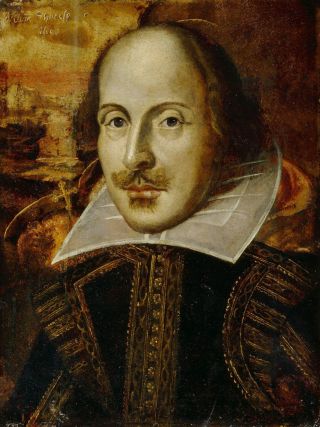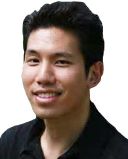Genetics
Shakespeare, Vermeer, and the "Secrets" of Genius
Genius: infinite in faculty, or just well-practiced?
Posted July 18, 2014
Guest post by Stuart Ritchie, Research Fellow at the Centre for Cognitive Ageing and Cognitive Epidemiology, University of Edinburgh. Follow him on Twitter: @StuartJRitchie.
Genius is under sustained attack. In the popular press, the notion that there is anything innate or unique about exceptional talent is viewed with suspicion, and regular articles and books appear claiming to reveal the "secrets" of great geniuses. Simply change your diet, or sleeping pattern, travel to these inspiring places, or adopt this new style of thinking, and you will be closer to the greats. The alternative—go back in time and alter your genetic makeup—is perhaps not so encouraging.
Might everyone, the genius-deniers ask, have it in them to produce a masterpiece? How masterly are the old masterpieces, anyway? Couldn’t anyone produce a Guernica, a Moby Dick, or a Mass in B Minor by learning the right tricks, or just by sheer grit and determination, putting in the hours of practice (10,000 of them, to be precise)?
For some time, the psychological literature has been similarly guilty of underplaying the importance of natural talent. But new research threatens to dislodge talent-denying views that emphasize only hard work and not inborn genius. Before discussing some of the latest examples of such research, I will explore two historical theories that claim to show that what we once thought was unassailable genius may have been something else entirely.
Shakespeare

Shakespeare
Since the mid-19th Century, several writers have raised the “Shakespeare Authorship Question”. They argue that there is little evidence that the man called William Shakespeare wrote the plays attributed to him. We have only shaky (if you’ll pardon the pun) evidence he was even literate. We have no record of his leaving Britain, but several of his plays display intimate knowledge of Italy. He was not aristocratic, and yet his plays contain details of courtly life that he could never have experienced. Is it not more likely, ask Authorship Questioners, that someone else wrote the plays, and for reasons lost to history passed them to the untalented Shakespeare so that he could take the credit?
The candidates for the "true" author are many and varied, but most popular in modern times is the ‘Oxfordian’ theory, which posits that Edward de Vere, the 17th Earl of Oxford, was the true author of the plays. This theory (supported by no less than Sigmund Freud, and depicted in Roland Emmerich’s 2011 cinematic flop Anonymous), rests on the facts that Oxford was well-travelled, well-connected, aristocratic, and was himself a poet and playwright. Not only that, but he was once aboard a ship hijacked by pirates (as occurs in Hamlet), was involved in a robbery on the exact same road as features in Henry IV, Part 1, and has several events in his personal life paralleled in the Sonnets. The Authorship Questioners argue that, given these formative life experiences that line up so beautifully with "Shakespeare", it far more obvious that Oxford wrote the plays and poems himself.
It is not my intention here to debunk these improbable fictions, which are entirely without merit. Interested readers are directed to the works of Shapiro and Edmondson and Wells, wherein it is demonstrated convincingly that a great deal of evidence links William Shakespeare to the folios of plays and poems that bore his name, and that he was indeed educated, with access to all the information and knowledge he required. Most important, there is absolutely no documentary evidence, contemporary or otherwise, linking anyone other than Shakespeare to the authorship of the plays. The Authorship Questioners (who appear to have been subject to a most unlikely nominative determinism: they count among their number a J.T. Looney, a G.M. Battey, and an S.E. Silliman) are picking up on minor perceived inconsistencies between the writings and the ‘mainstream’ story. This is classic conspiracy theorist behavior, seen on topics from the Moon Landing to 9/11.
I am far from the first to note that the Shakespeare Authorship Question betrays an impoverished view of human creativity. The idea that direct autobiographical experience, as opposed to imagination, is necessary to write about Venice, or pirates, or romantic travails, is not only a modern notion—unheard of in Shakespeare’s day—but also devalues Shakespeare’s genius. It does, however, fit snugly alongside modern talent-trashing notions: Visit enough of the right places, meet enough of the right people, and you too could be the Bard.
Vermeer
A dearth of documentary evidence is also the weakness suffered by our second heretical historical theory. The Hockney-Falco thesis, put forward by the painter David Hockney and others, seeks to explain the saltatory leap in the realism of the visual arts starting at the beginning of the Renaissance, where painters began to incorporate complex effects of lighting and perspective that moved their art beyond the often flat and oddly-proportioned pieces of the past.
The Hockney-Falco thesis suggests that these advances were not due to the insights of creative geniuses, but were instead the result of the artists using a variety of lenses, mirrors, and other optical devices that allowed them to "trace" images from the world onto their canvas. For example, the camera lucida is a small mirror placed above the canvas that reflects the scene in front of the artist. They can trace the scene by carefully copying the mirror; thus, the shapes and colours in the painting come not from the artist’s perceptiveness, but are simply transferred by robotically matching the painted lines and tones to those in the reflection.
Hockney and colleagues have hypothesized that celebrated painters such as van Eyck and Caravaggio used such techniques. One later artist who seems a particularly plausible candidate is Vermeer, whose small oeuvre achieves an uncanny photorealism seen in few previous works. The idea that Vermeer used optics was promoted in the 2013 documentary Tim’s Vermeer, narrated and directed by the magicians Penn and Teller. The titular Tim (Jenison, an inventor) painstakingly reconstructs the exact scene of Vermeer’s The Music Lesson, complete with the precise window and lighting angle, and also rigs up the optical contraption supposedly used to create the painting. He sets about testing whether the ‘tracing’ method can realize the near-perfect diminuendo of light as it passes from the window across the wall, among the other exquisite features of the work.
Hockney-Falco theorists are swift to point out that they don’t see their thesis as a diminution of the genius of the "Old Masters". Even with the technological assistance, the compositions, colours, and subjects of the paintings still had to be chosen, and were chosen brilliantly. This is not to mention the scientific and engineering skill that would have been necessary to design the optical equipment in the first place. Still, it is difficult to watch Tim’s Vermeer, which makes much of an untrained individual creating a masterpiece (“My friend Tim painted a Vermeer!” exclaims Penn once the imitation is completed), and not come away with the conclusion that Vermeer must merely have acted as a human camera, or worse, a human photocopier. If the master’s reputation is not completely punctured, it is somewhat deflated.
The Hockney-Falco thesis has been met with skepticism, and it should be borne in mind that painters—including Vermeer—never once reported using the optical technology outlined in the thesis, and nor did their subjects or apprentices ever mention it. Whether this is due to them protecting their trade secrets, or due to those secrets never existing, one should exercise caution. Critics have pointed out that, despite Jenison’s Herculean effort, his painting is still vastly inferior to the original; to claim otherwise would be to misunderstand what makes Vermeer great. The Guardian’s art critic declared Tim’s Vermeer “an art film for philistines”, and attacked it for suggesting that “anyone can make a beautiful work of art with the right application of science” and that there was, therefore, “no need for mystical ideas like genius”.
We return to our theme of doing down genius, though perhaps "mystical" is a step too far. It would be wrong to conclude from the Hockney-Falco thesis that a scaffolding of clever technology, along with some elbow grease, can turn anyone into a great artist. But what exactly is it that makes great artists?
Psychology
Exceptional individuals are made, not born. At least, one could be forgiven for thinking this was the case given the statements made by K. Anders Ericsson and colleagues. Ericsson maintains that natural psychological differences are not relevant for explaining expertise and genius, even in extreme cases such as that of Mozart. “The only innate differences that turn out to be significant—and they matter primarily in sports,” claim Ericsson and colleagues, “are height and body size”. The "10,000 hours" theory propagated by these authors and others—in which it was claimed that expert performers only really differ from non-experts in the total number of hours for which they have practiced (and to be exceptional, 10,000 hours is minimal)—has captured the imagination not only of the public, but also the scientific community. The paper in which the claims were originally made has been cited over 1,500 times. Many otherwise clear-thinking scientists have cited the theory without reference to the myriad criticisms that have appeared since.
Such criticisms have come to a head recently, in what is a clear swing of the proverbial pendulum away from "10,000 hours" and back towards "hereditary genius". A special issue of the journal Intelligence was recently dedicated to discussion of talent and practice, and in particular, to consideration of Ericsson and colleagues’ claims (Ericsson has written a response). Particularly damning evidence against "10,000 hours" comes from one paper in the special issue, on the study of child prodigies who cannot possibly have practiced for such extended periods, but nonetheless show incredible feats of, for example, musical ability.
More systematic attempts to survey the scientific literature are no friendlier to the '10,000 hours" view. Macnamara and colleagues meta-analyzed 88 studies of deliberate practice, concluding that, for the domain of musical ability, only 21 percent of the variance in performance was due to practice. That is, the vast majority of the variance is left unexplained, and may be due to other factors including differences in personality and intelligence, characteristics we know are under substantial genetic influence.
A beautiful recent paper by Zach Hambrick and Elliot Tucker-Drob shed even more light on the genetic and environmental origins of talent. Examining musical talent in a sample of twins, they showed, first, that musical accomplishments (including winning prizes for musical ability or performing in a professional orchestra) were, on average, 26 percent heritable (that is, 26 percnt of the variation in accomplishments in the sample was explained by genetic differences). Second, they showed that the frequency of engaging in music practice was even more strongly influenced by genes: it was 38 percent heritable. Most interestingly, though, they found evidence for gene-by-environment interaction. Splitting the sample into those who did and did not practice, they showed that there was a far larger genetic contribution to the variance (59 percent) in accomplishment among those who regularly practiced than those who did not (1 percent). The practice, then, was the canvas on which the genes were painted. In a world in which everyone had the same instruction, the same practice, and the same experiences, we should still expect large, genetically-influenced differences in achievement.
Admittedly, the psychological literature contains few studies of the type discussed here that address playwrights or painters. Nor, naturally, can it study individual masters such as Shakespeare or Vermeer, preferring to focus on garden-variety experts and exceptional performers rather than true one-offs. Nevertheless, since the "10,000 hours" theory turns out to be an extraordinary popular delusion for each of the domains yet studied, there is good reason to give short shrift to accounts that glibly emphasize the making of expertise at the expense of its inherited nature.
Conclusion
The public fascination with ideas like the Shakespeare Authorship Question, the Hockney-Falco thesis and the "10,000 hours" theory is evidence of a strange doublethink: even as we lionize the achievements and creativity of great geniuses, we secretly wish them brought down to our level, and revel in sublunary theories that purport to expose their secrets and crutches. But the psychological literature shows that to write off genius as only experience, trickery, or hard graft is to miss the critical—though still largely mysterious—contribution of innate talent, acting via one’s genetic endowment, to creative achievement. One can only hope that the new wave of psychological research on talent, pushing back as it does against "practice-only" accounts, will allow us to make real progress in understanding this most mercurial of human faculties.
I am grateful to Iva Čukić for helpful comments on a previous version of this article.




